St. Luke’s Hospital Achieves Level II Trauma Center Designation
St. Luke’s Hospital earned official designation from the Massachusetts Department of Public Health as a Level II Adult Trauma Center
The trauma center is the first of its kind in the region, filling a critical need serving southeastern Massachusetts and parts of Rhode Island.
Level II Designation
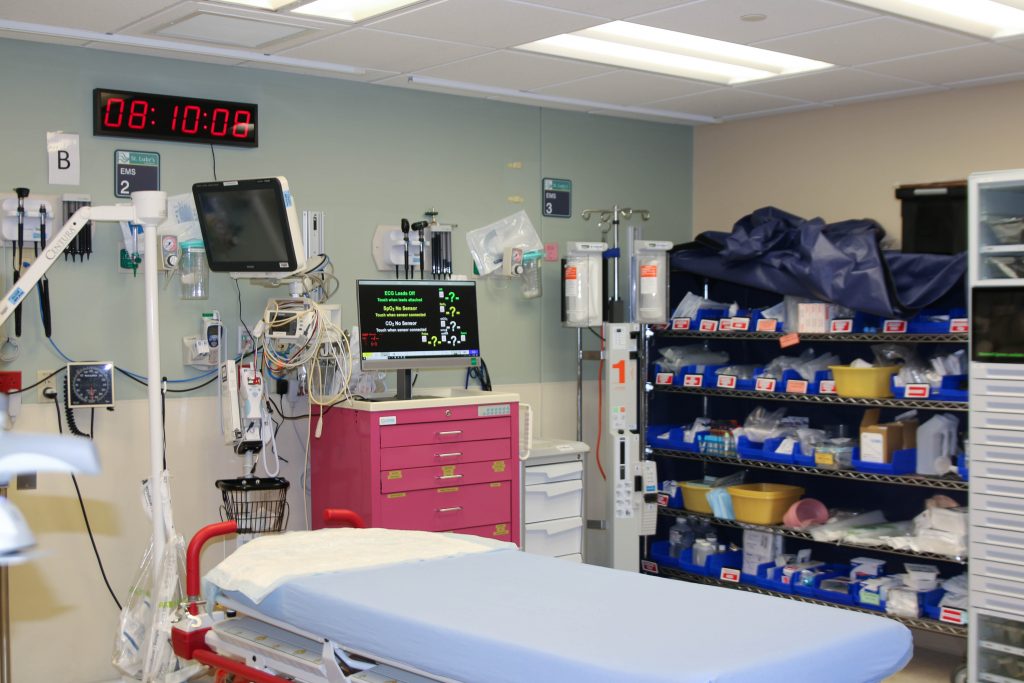
Becoming a Level II trauma center is a rigorous process that involves verification by the American College of Surgeons. Currently, St. Luke’s has a full trauma team onboard with a trauma surgeon and staff available 24/7.
The American Trauma Society breaks down the differences between each trauma center level here.
Additionally, an important aspect of a Trauma Center’s responsibility is creating and maintaining a Trauma Registry. The data from each hospital is abstracted and put into the Trauma Registry by a Trauma Registrar. It’s then submitted to the National Trauma Data Bank (NTDB) and Trauma Quality Improvement Program (TQIP), which is then used for research, best practice guidelines, and benchmarking.
“The level II trauma designation means that we built a program or system that meets pretty high nationally accepted standards for critically injured patients,” says Dr. Brandon Fumanti, a Trauma Surgeon at St. Luke’s Hospital.
Community Benefits
According to the American Association for the Surgery of Trauma, traumatic injuries are the leading cause of death for individuals up to 45 years old. In an emergency, every second counts and victims of traumatic injuries often find themselves in a race against time. The ability to receive care quickly and close to home could be lifesaving.
Establishing a level II trauma center in the community fills a critical need. With faster access to evaluation and care, the trauma center is safer for patients and the community. It is also beneficial for their loved ones and family members as it is easier to get to. After traumatic accidents, many patients require surgery, hospital stays or follow-up care.
“Previously, for the South Coast region, the closest designated trauma center is out of state in Rhode Island, a significant drive away,” says Dr. Theodore Delmonico, a Trauma Surgeon at St. Luke’s Hospital. “Not only is a lengthy transport dangerous for a very sick or traumatically injured patient, but it also takes that ambulance out of commission for some time, limiting the resources available to other patients in need within the region.”
Expert Team
Here at St. Luke’s we are fortunate to have a highly skilled team available 24/7 in the trauma center. Below are a few profiles of the St. Luke’s Trauma Team. You may click on their photos to learn more about these providers.
Thank you to all trauma providers and EMS first responders who help keep our community safe.
Emergency Preparedness and Skill Strengthening
St. Luke’s Hospital Recognizes National Stop the Bleed Day 2021
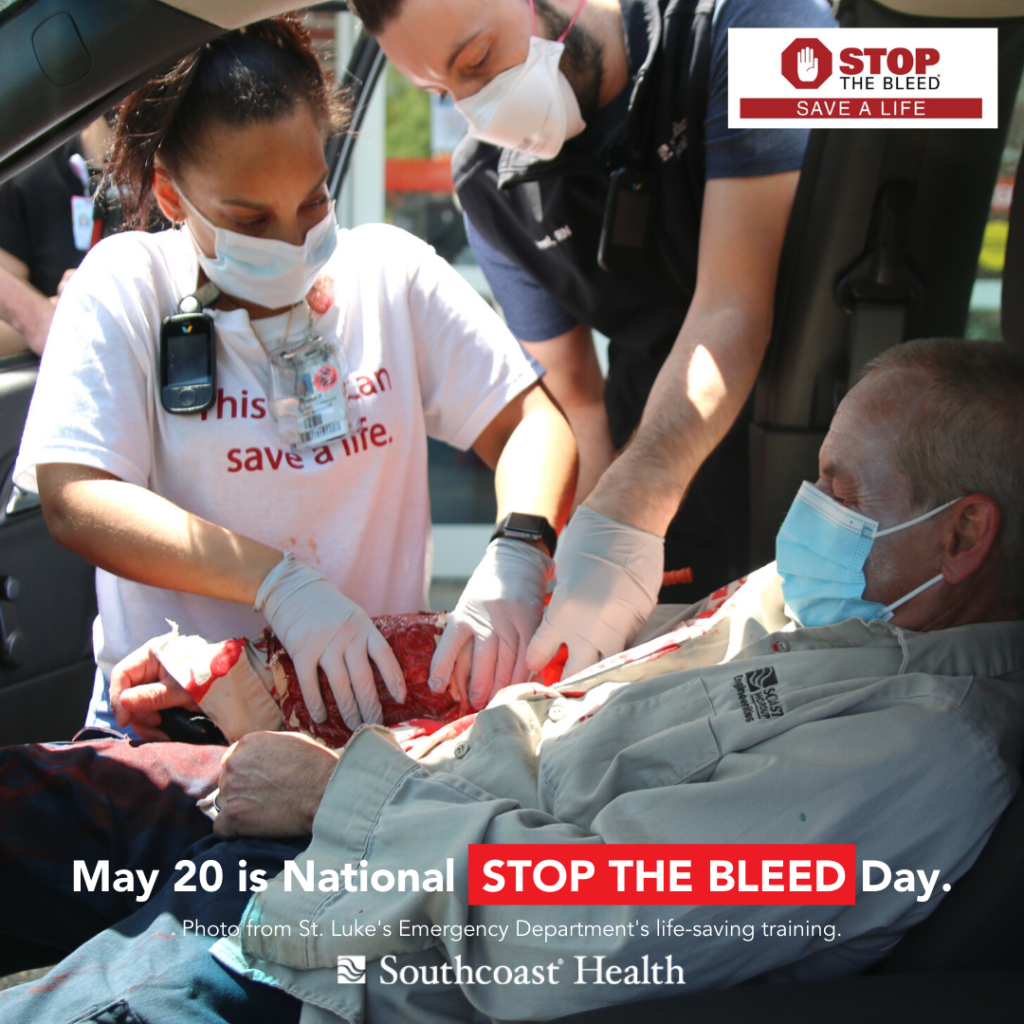
The Stop the Bleed campaign is a collaborative effort initiated by the Department of Homeland Security to spread awareness about the importance of the use of tourniquets in emergencies to stop life-threatening bleeding quickly.
Knowing how to control bleeding from a serious injury is essential knowledge, and through training programs, this campaign equips and empowers bystanders to help in an emergency before professional help arrives.
Throughout the day on May 20, 2021, each Emergency Department shift participated in a fast-paced Stop the Bleed simulation.
“As a trauma center, we want to make sure that our community and team members know how to perform life-saving measures to stop bleeding. This program helps team members exercise their skills in a simulation to activate our trauma response.”
St. Luke’s Trauma Program Manager, Stephanie Raby.
Community Collaboration
Tourniquets are used to control bleeding from extremity wounds and have been incorporated into trauma care both in the prehospital and hospital settings. This simple piece of equipment has become essential to saving lives in trauma situations, such as gun violence, that have become prevalent in our current culture.
In some cases, the application of a tourniquet can mean the difference between life and death. Previously, Southcoast Health donated and equipped the New Bedford Police department with tourniquets for use in the field. Click here to read more.
Educational Trauma Simulations Prepare the Team
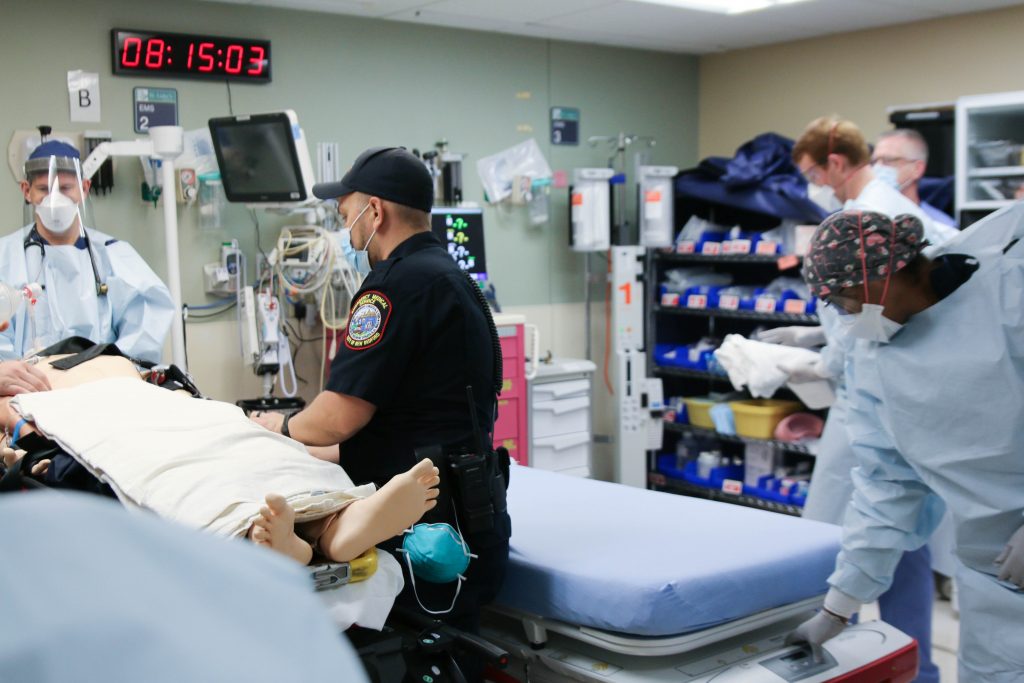
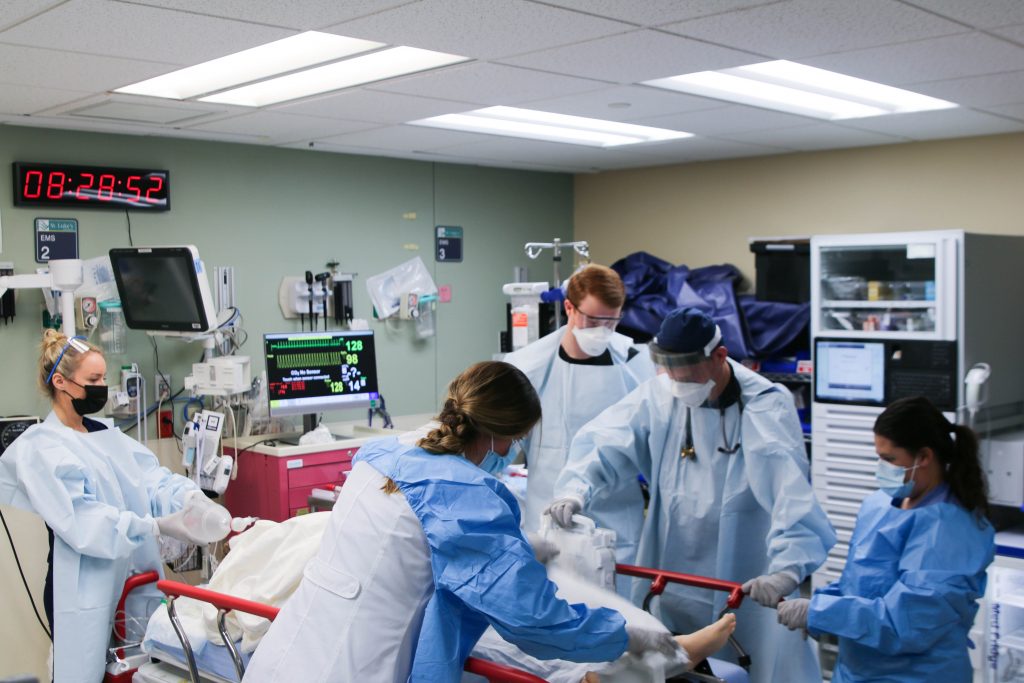
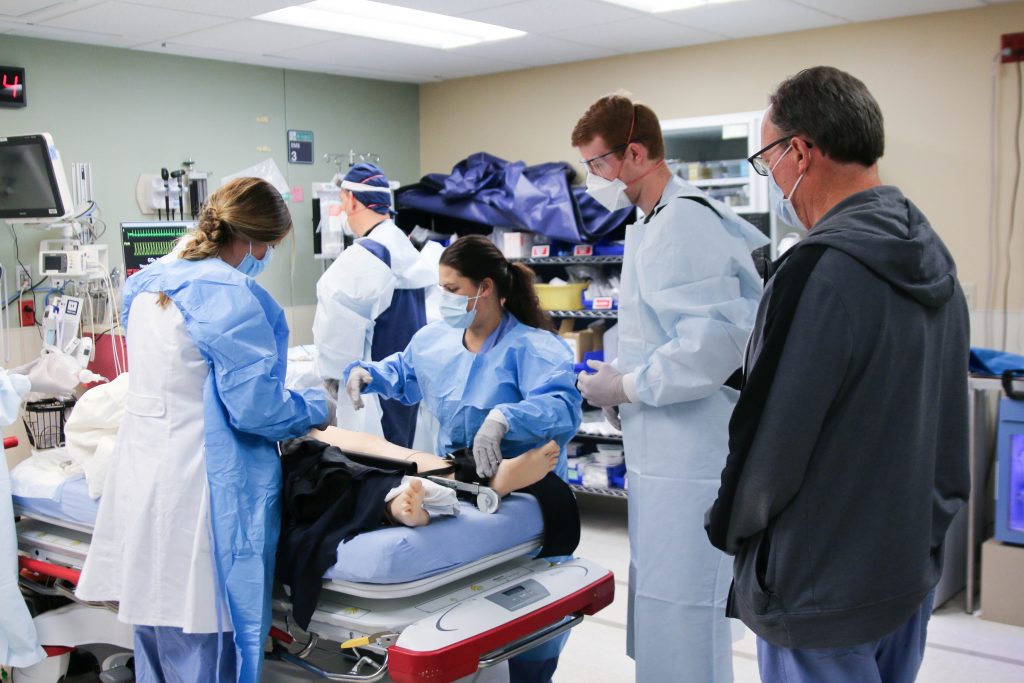
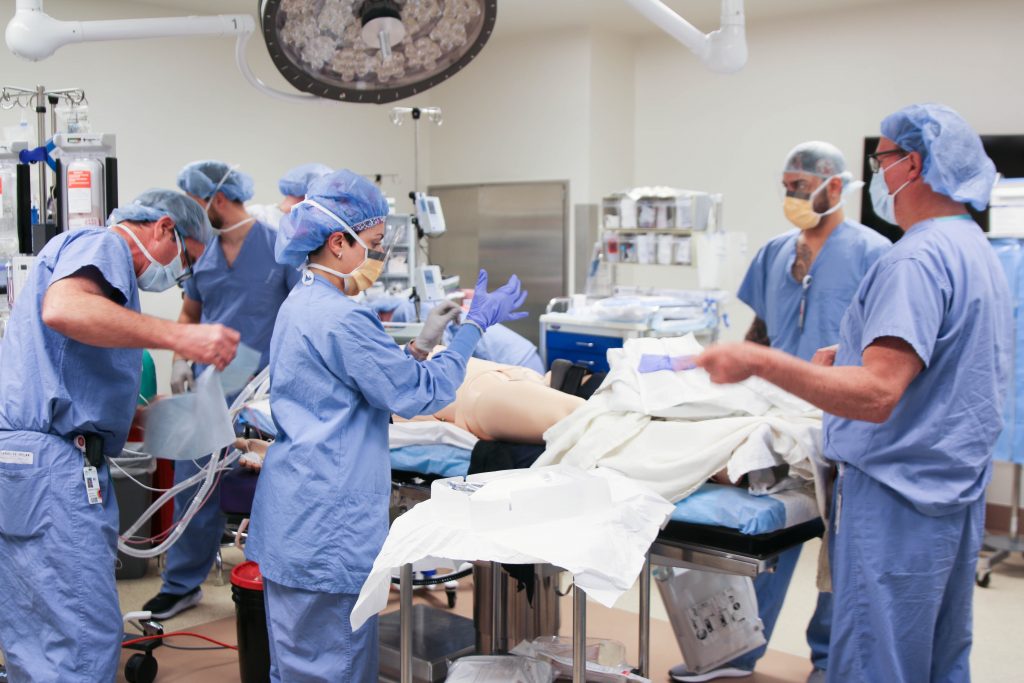
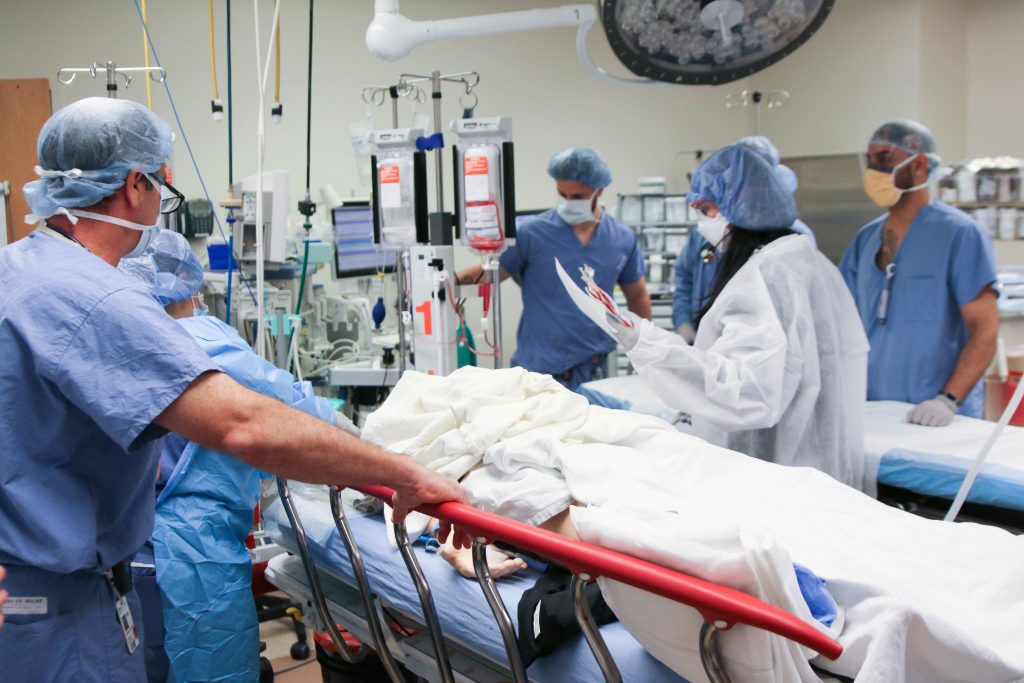
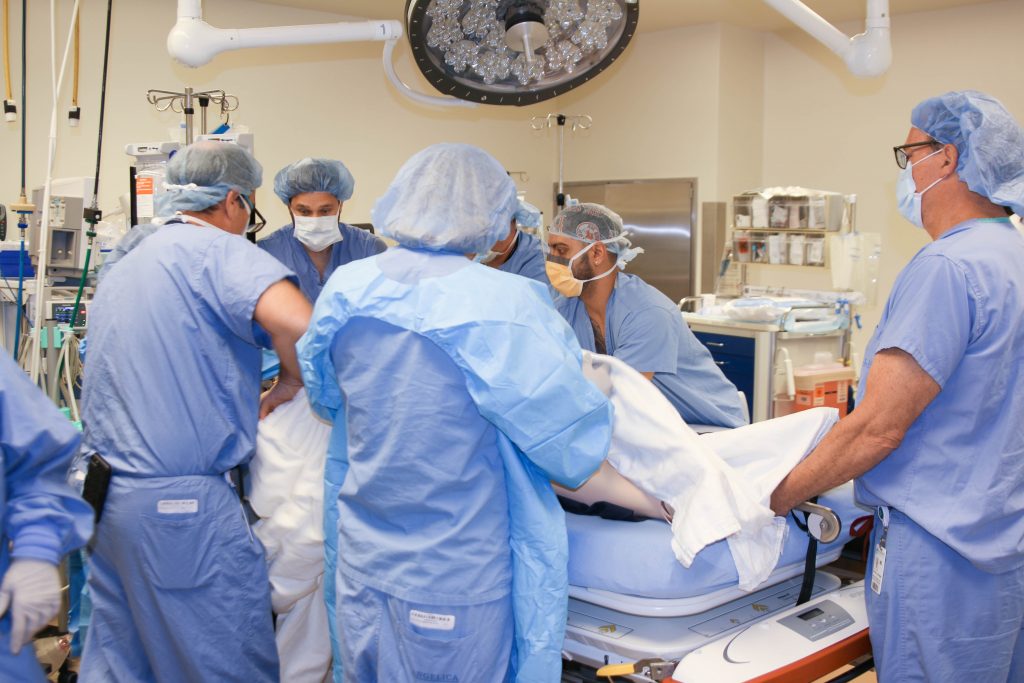
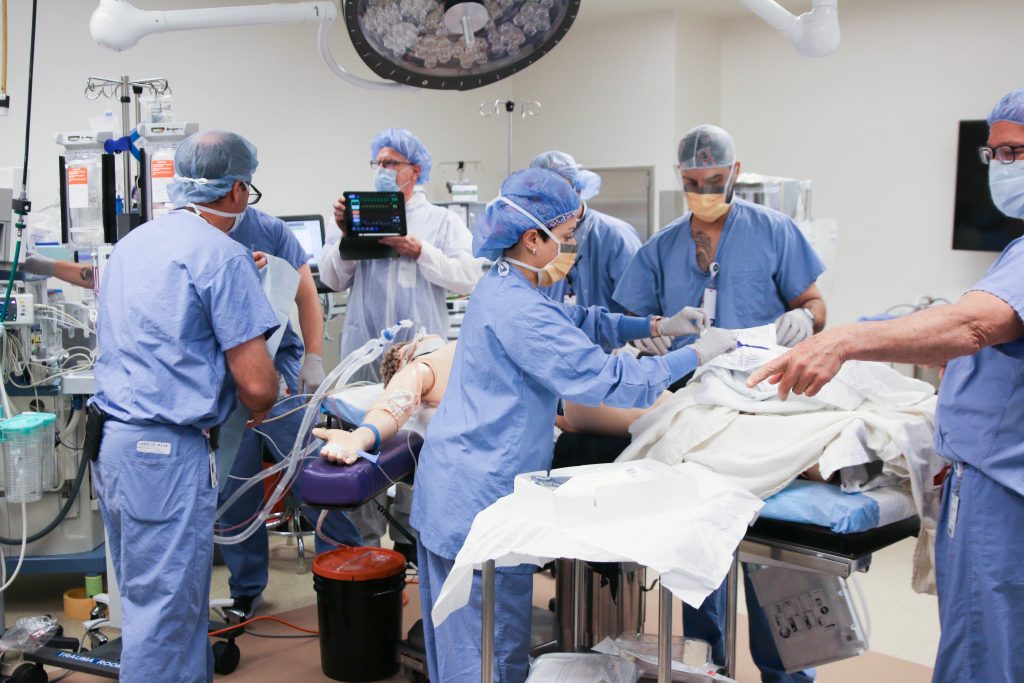
Research shows that trauma patients need specialized medical attention within an hour for the best outcome.
Although no one can predict when an emergency may occur, our trauma team does everything they can to prepare for patients if they do get injured. Working together, this team always puts the patient first, continually improving on their skills and response time. To ensure that they are exercising their skills often, this team participates in trauma simulations so that they know exactly how to best care for a patient in a real situation.
Carefully going through multiple simulations in an educational light is just one way they show their commitment to providing excellent care close to home.
Specialized Care
The Emergency Departments at Charlton Memorial, St. Luke’s and Tobey Hospitals can treat all kinds of sudden and severe illnesses and injuries.
St. Luke’s ED also has pediatric specialists from Boston Children’s Hospital on-site around the clock. These specialists can also be immediately available to consult on pediatric patients at Charlton Memorial and Tobey.




